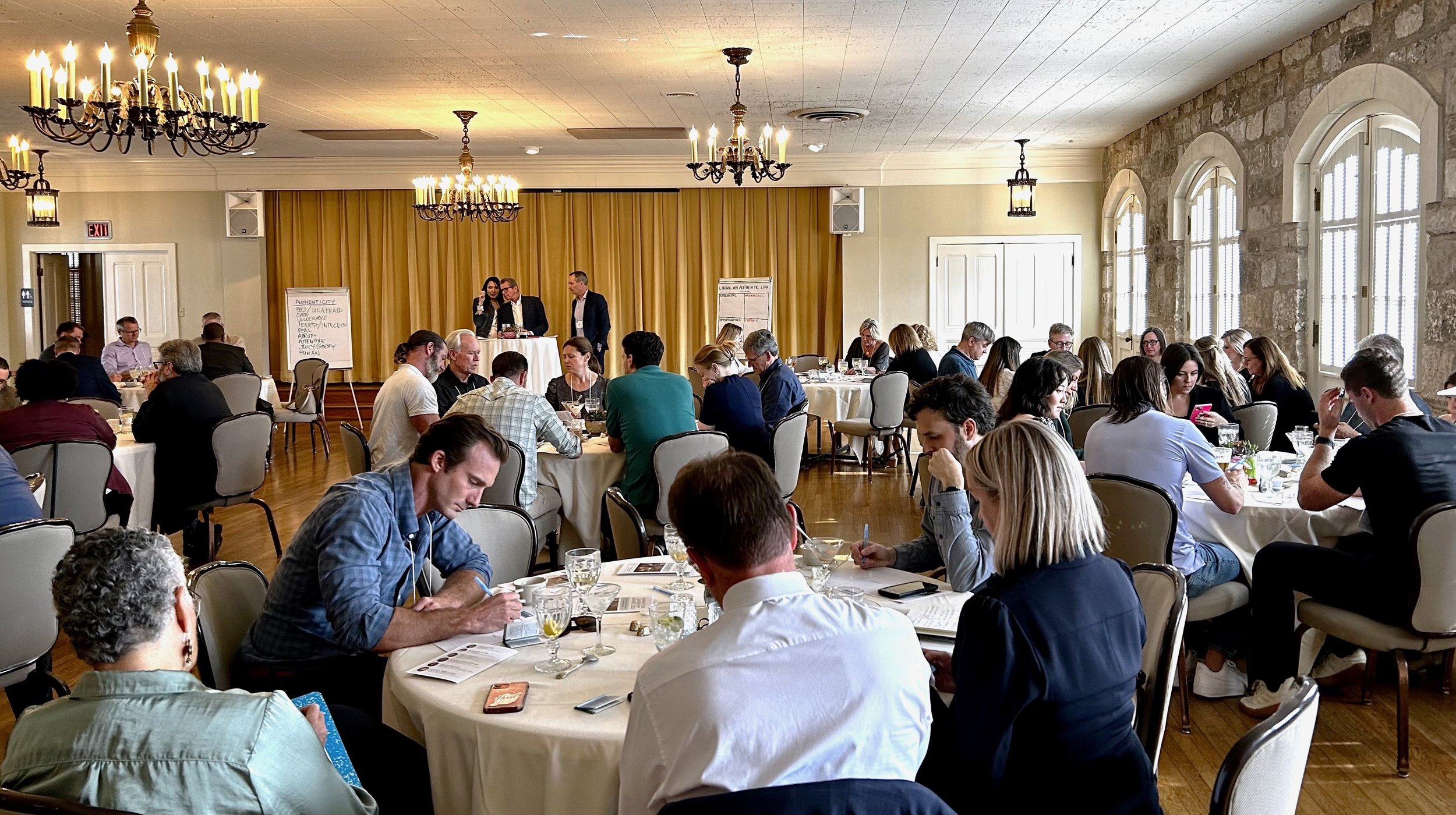MOMENTUM BLOG
The Economics of Decency in the Desert
Burning Man operates on 10 Principles, similar to our Fundamentals that we share every week, that set the standards of behavior. Inside this behavioral code, there is enormous freedom to express yourself. There is an environment of acceptance and appreciation. People walk the street, sometimes in just their shoes and maybe a dust mask, and others barely notice. It is a mecca for expressing oneself how they always wanted and would not dare in our normal environments.
The Symptom and the Cause
We have stages in life that feel lower in physical and mental energy than others. Perhaps it’s a stage related to illness or stress.It seems logical that we would look at the cause, not the symptom, but what do we normally do?
Blame Culture
WE LIVE IN A CULTURE OF BLAME.
This seems to be the rule and no longer the exception.
When did we become so afraid of accepting responsibility? I know for me personally, I used to hate making mistakes. And worse than that, I was getting in trouble for my mistakes. I’m not sure why…. because the consequences were never as bad as I imagined in my head. Nobody has ever expected perfection or loved me less because I make mistakes.
Are You Coachable?
I may have gotten a little more coachable over the years, but my default in hearing feedback is not to listen, but instead listen to the voice in my head that says,
“I KNOW THIS ALREADY.”
It's a Matter of Trust
In the workplace, trust is vital in many areas:
Employees trust that you will keep their personal information confidential, including discussions or actions related to that information.
Management and shareholders trust that financial data, proprietary information, trade secrets, processes and plans will not be shared with others unless agreed and/or required.
Management trusts that customers will pay for products and services delivered – and trust that they have recourse if that doesn’t happen in a timely manner.
Most importantly, it’s critical that your team trust you as a leader. You may demonstrate trustworthiness in many ways: respecting confidentiality, consistently evidencing ethical behavior, being accountable for your commitments and allowing the open and blameless exchange of ideas. If they trust you, they can follow you.
Back to the Economic Power of Decency
WHEN DECENCY BECOMES LESS IMPORTANT THAN IDEOLOGY…
If the power of decency is being threaded out of our Culture, what impact does that have for business thinking and strategy?
You Get What You Ask For
In relationships at work or at home, remember that assumptions remain in your own mind. Explicit requests are spoken or written in detail. And most people will rise to the occasion if you give them the requirements and expectations.
Get the Win.
It’s not just about focusing on the final score. It’s about looking at the small results that lead us to the overall win. It’s a progress tracker that keeps us in the game and helps us define our next action step. There is a very different play call on 3rd down and short than on 3rd down and ten yards. Each successful “down” leads us to the opportunity to put points on the board.
Find A Way.
In an industry heavy with regulations and rules of what you can and can’t do, she tenaciously brings the attitude of "FIND A WAY" for her customers’ benefit.
Blame or Accountability?
Blame is not accountability.
While blame can be conferred on someone else, accountability is engagement and ownership we impose on ourselves. I cannot hold you accountable if you do not do so yourself.
Commitment Overwhelm
Inevitably, things pile up, and I end up not keeping a commitment. When this happens, I notice a loss of personal power and a reduction in my happiness and self-expression. Basically, I feel bad for not keeping my word. The biggest trap here is that all the attention is on myself. I can hear my inner critic judging and evaluating myself for not being good enough.
What do we Know about Reality? Nothing, Really!
Brain science reveals a lot about how we interpret life, especially to fit our personal worldview or reality. Some of those distinctions are:
Conformational bias: Looking for qualities and behaviors that confirm your beliefs about someone or something while ignoring those that contradict your beliefs.
2. Halo/horns: When a positive or negative impression of someone carries over into all future interactions with that person.
3. Stereotyping: making assumptions based on appearance, or grouping people to assume they are all the same
4. Similarity effect: Having greater confidence or trust in someone because they are like us.
5. Motivational blindness: the tendency to not notice the unethical actions of others when it is against our own best interests to notice. (this is a wicked one!)
Assignment: Fun
If we are having fun in what we are doing, we are going to be more motivated to complete the task, be more engaged, and relieve stress.
Why do I feel no one is Listening?
So, why are top leaders in top organizations having trouble being heard?
Service is 360
Altruism - unselfish regard for or devotion to the welfare of others - can:
Feel good – altruism has been proven by studies at NIH to promote changes in the brain associated with happiness.
2. Reduce isolation and impart a feeling of belonging .
3. Reduce stress and feelings of negativity .
4. Give perspective .
5. Be contagious.
Serving the Customer
Serving the Customer also means doing the right thing. This is a review of a Future Frontiers meeting with Conscious Capitalist John Mackey and the premise of doing the right thing in business as a service to the customer.
Conscious Capitalism
If you treat people with consciousness and a concern for your impact on them, in business or in life, you will get a higher return on your effort than if you do not!
Managing a Safe Work Environment
Workplace / office safety requires:
Presence
The ability to be present with each other
Always Do Your Best
Are you doing things with excellence? Really? Are you really doing your best? Try this on and see if it does make a difference in everything.
What is there to gain from a zero-sum game?
All our life, we learn to make decisions and conclusions, then defend them. Once we determine we are right, we cling to that “rightness”, often despite evidence we may be wrong. Our egos get in the way of changing our minds.
FEATURED BLOG POSTS
Check out the latest from our blog
Valuable Leadership tools, direct to you:
Join the Coaching Moments insiders list to receive a weekly email with coaching tips and leadership insights.
We promise to only send you the good stuff.

























